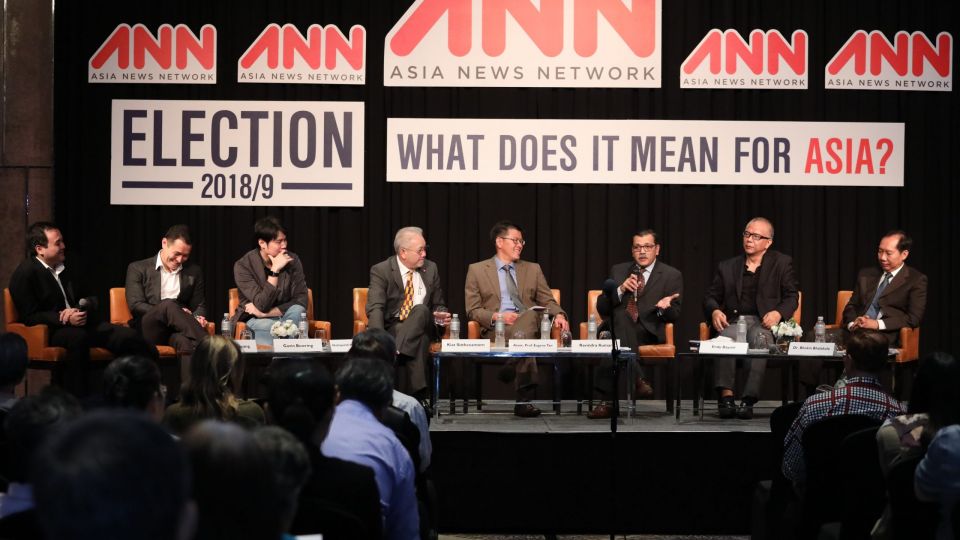March 19, 2018
Elections being held across Asia this year and next will not be a panacea to the region’s ills, a panel of experts concluded.
With elections due in Bangladesh, Cambodia, Malaysia and Pakistan this year and Thailand and Indonesia next year, many are looking to polls for an indication on the direction of the region.
However, an expert panel hosted by Asia News Network in Bangkok agreed that elections were unlikely to fix the region’s ills. In fact, elections would likely continue the trend towards populism and authoritarianism that the region was facing.
“The people who are in power do not take elections as a measure of popularity but being in power is about deceiving and manipulating public opinion,” said Mahfuz Anam, editor-in-chief of The Daily Star.
Every country, Bangladesh included, is using state machinery – bureaucracy, intelligence, police and the judiciary – to manipulate the public will.
According to Kingsley Abbot, a senior legal advisor to the International Commission of Jurist, the current direction points to further human and civil rights abuses. Abbot pointed to the deteriorating rule-of-law and attacks on freedom of expression and the press as clear indications on the direction of countries across the region.
Social Media and Disinformation
At the same conference, the audience also heard panelist worry about the rise of social media as the go-to source for information and news.
Panelists say that with the rise of smartphones and internet access in Asia, information has never been more accessible…and easier to manipulate.
Marketing blogger Nuttaputch Wongreanthong and Thai Democrat Party MP Kiat Sittheeamorn worried about third-party sources and political parties using fake news to defame and manipulate the public will.
“Social media platforms have a very crucial function in providing information, interaction and mobilizing activities. They have become more powerful for spreading messages and shaping public agendas,” Kiat said.
“Still, the challenge remains with fake news. It’s a job that we have to commit to, to ensure fair competition among all political players.”
Eddy Bayuni, the Jakarta Post’s senior editor, said Indonesia, as Southeast Asia’s biggest country, was another large social media hub, and that victories and losses in elections there had been determined by social media in many cases.
Indonesia had its share of fake news and hoaxes, which had been intentionally produced for political purposes, Bayuni said.
But while all the panelists agree that fake-news and disinformation were and are serious problems, there was a unanimous agreement that passing legislation to fight it was not in the best interest of the public.
All agreed that passing laws specifically for digital and social media was a slippery slope, such laws could be enforced selectively or used to stifle freedom of expression.


